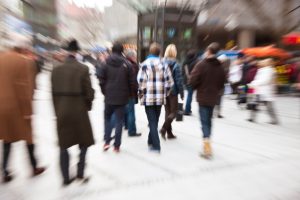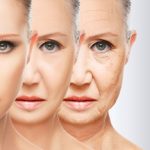
Research has now shown a close link between the neighborhood you live in and your aging. So if your goal is to live a long life you may want to consider moving…
Your neighborhood affects your health

Researchers examined the telomeres of 2,902 Dutch people. These individuals were part of a Netherlands Study of Depression and Anxiety. They had to report on their neighborhoods in context of fear of crime, noise levels and perceived neighborhood disorder.Researchers noticed the shortening of telomeres was more in those who had higher stress and greater perceived danger from their neighborhood. Furthermore, the length of their telomeres showed that between the group of high-stress and those who felt safe in their neighborhoods there was a chronological age disparity of 12 years. This means that although the participants were close in age, those faced with political, socio-economical and emotional stressors aged much quicker.
Your neighborhood’s impact on mental health

The volunteers in the new study revealed their level of stress and anxiety while living in their neighborhoods. There are many factors which come into play which can contribute to this.
Some contributing factors to poor mental health in neighborhoods are:
- High crime rate
- Poverty
- Environment: Air pollution and water contamination
- Lack of green spaces
- Housing cost, quality and security.
These factors all play a role in affecting one’s mental health. When these stressors grow those living in the community experience higher levels of mental illness, including depression and anxiety.
So if you didn’t think your neighborhood could impact your health, think again. Where you reside plays a large role in mental and physical wellbeing. So how do we combat poor health in our neighborhoods?
Improving health by improving neighborhoods
Each neighborhood has its own unique troubles and stressors. It is up to the governing bodies to make policies and create change to promote the overall health of the community.
In order to create change the stressors must first be recognized. For example, if people in the community feel unsafe due to rates of crime there is a strong need for more policing. If people are unwell because the environment is a concrete jungle, with smog and poor water quality, changes to the environment must be made.
A neighborhood is only as strong as those living in it and so it’s the responsibility of the governments to make their people feel safe and ensure they are taken care of. By creating change and implementing policies that benefit the community, those living in it will become healthier.
In the meantime, if you can’t change your neighborhood still try to make conscious efforts to support your own health.
Eat as well as possible, go visit green spaces where the noise level is lower; try to exercise as much as you can and rather than isolate yourself attempt to make connections within your neighborhood. These are just some essential tips to healthy living that occur just about anywhere.
Related Readings:
7 reasons your home isn’t as safe as you think
We like to think of our home as our refuge – a place to relax, recharge and leave the worries of the outside world behind. It’s predictable, it’s comforting. We know what to expect and everything has its place. Continue reading…
10 houseplants to heal your health and your home
With people spending far more time inside their homes these days, it’s nice to add an outdoor touch of fresh greenery with beautiful, live house plants. Not only do houseplants add some color and life into your home, but they also help improve air quality by removing volatile organic compounds (VOC’s) that hurt your health. In this way, houseplants are a breath of fresh air for your morale, your décor, and your good health. Continue reading…
Sources:
http://www.sciencedaily.com/releases/2015/06/150618122228.htm
http://www.stmichaelshospital.com/pdf/crich/neighbourhoods-mental-health.pdf
http://www.commissiononhealth.org/PDF/888f4a18-eb90-45be-a2f8-159e84a55a4c/Issue%20Brief%203%20Sept%2008%20-%20Neighborhoods%20and%20Health.pdf